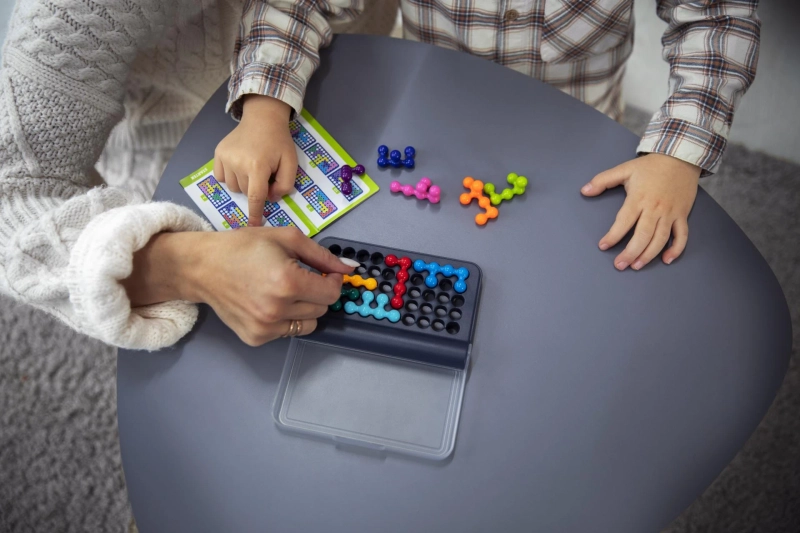In today’s digital world, the line between entertainment and skill development is increasingly blurred. From mobile apps and online contests to brain games and trivia challenges, a wide range of interactive platforms now claim to be "skill-based." But what truly defines a skill game? Is it just about keeping users engaged, or is there a deeper layer of strategy, practice, and expertise involved?
Understanding how to identify whether a game is genuinely skill-based is essential, not just for players but for developers, educators, and even policymakers. The stakes are higher now because skill games are being recognized not only as sources of entertainment but also as tools that sharpen cognitive ability and decision-making.
What Is a Skill Game? The Core Idea
A skill game is one where the outcome is primarily determined by the player's abilities—mental, physical, or a combination of both. These abilities could include memory, speed, strategy, analysis, focus, and timing. In other words, the more you practice and improve, the better you perform.
Skill-based games are often repeatable, with players improving over time. Think of classic examples like chess, crossword puzzles, or competitive quizzes. These games are driven by skill, not by external or uncontrollable outcomes.
Signs a Game Is Based on Skill
1. Improvement with Practice
One of the clearest indicators of a skill-based game is that players get better the more they play. This means performance isn’t static. Players who study the mechanics, learn patterns, or develop strategies can consistently outperform others.
For example, someone who starts a memory-based game may struggle initially. But with time and effort, they can learn to recall information more effectively, improving their results.
2. Decision-Making Matters
In a true skill game, the decisions you make during the game influence the result. Whether it’s choosing the best move, adjusting your pace, or changing your approach based on a new scenario, your thought process drives success.
This active decision-making is what separates skill games from games that are just about reacting to a result.
3. Knowledge and Timing Play a Role
If a game rewards those who are knowledgeable, aware, or quick-thinking, there’s a strong chance it is skill-based. Some games might involve recognizing patterns, understanding statistics, or anticipating outcomes based on real-world information. In these cases, the game rewards brainpower, not guesswork
According to a report featured by PTI, platforms that thrive on such elements validate how analytical skills and awareness can directly influence performance. Games that test reaction time, multitasking ability, or awareness of current trends often fall into this category.
4. Consistency Across Top Performers
Look at how the best players perform. Do the same people or types of players consistently do well? If yes, it’s likely because skill and not randomness is driving the outcomes. Skill-based games tend to have a learning curve and reward mastery.
Common Misconceptions About Skill Games
Not All Fast-Paced Games Are Skill-Based
Speed alone doesn’t determine whether a game involves skill. Just because something happens quickly doesn’t mean the user has control. A fast game could still be designed in a way that makes outcomes unpredictable or disconnected from the player's actions.
Difficulty Doesn’t Always Mean Skill
A hard game isn’t automatically skill-based. Some games are difficult by design but don't offer meaningful ways for players to improve or control the outcome. Real skill games challenge players, but they also give them tools to succeed with practice.
Types of Skills That Matter in Games
Skill games can be built around a wide range of abilities. Here are a few types that frequently define success:
Strategic Thinking: Planning moves ahead of time and managing resources
Analytical Skills: Breaking down information and spotting patterns
Memory: Recalling facts or sequences under pressure
Hand-Eye Coordination: Especially in reflex-driven games
Time Management: Making decisions quickly and effectively within time limits
Focus and Concentration: Sustained attention over long durations
Why It Matters to Know the Difference
Recognizing whether a game is skill-based isn't just an academic exercise—it has real implications. Players invest time and energy into mastering games. Knowing that their success is based on effort and improvement adds value to the experience.
A recent study covered by Hindustan Times reinforces this idea, showing how platforms that rely on skill-based formats reward analytical thinking and decision-making. From a broader perspective, skill games can have educational and developmental benefits. They sharpen decision-making, foster strategic thinking, and encourage discipline.
Conclusion
In a world filled with digital games and interactive experiences, distinguishing between skill-based and non-skill-based formats is crucial. True skill games challenge your mind, reward your growth, and offer meaningful engagement. They are about mastery, not just entertainment.
Whether you're a casual player, a creator, or someone curious about how the game world works, knowing what defines a skill game helps you better appreciate the power of learning and strategic thinking behind every move.
Read More: Why Skill-Based Opinion Trading Is the Next Big Thing


